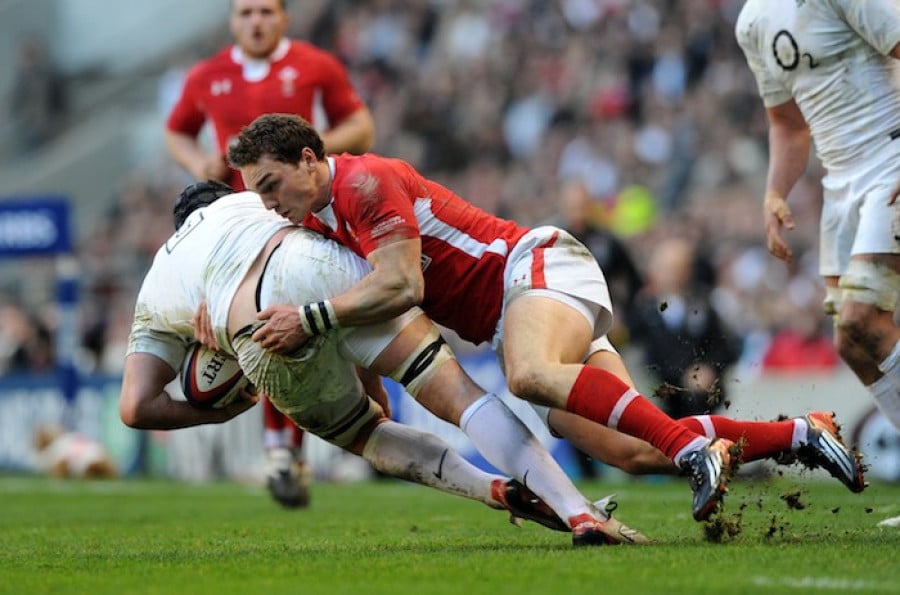The curious case of George North part 2 - player power and terms of contracts

In this two part article, Sam Vitty, analyses the recent George North case and considers the legal implications of Northamption Saints Rugby Club allowing North to represent Wales outside of the designated IRB windows.
Player power and the terms of contracts
As has been seen in football, in situations where a player wants to break his contract in order to join a new club, clubs have been shown to have little or no power to keep an unhappy player and also see no value in it. Therefore, the bargaining power in football now rests almost solely with players.
In rugby union, without a similar transfer system, there are so few players of sufficient standing on the global stage that the likes of George North can ask clubs like Northampton to insert favourable clauses in their contracts (which may lead to potential breaches of policy), provided they are not illegal. The same is allegedly true of North's fellow Welsh international Richard Hibbard, who has agreed to join Gloucester from the Ospreys and has, it is rumoured, also negotiated a full Wales release clause in his contract.
Northampton and similar clubs have to agree clauses of this nature to ensure that they are able to attract the best players, especially when those players are moving across a Union.
If the clubs don't agree to these clauses, they are likely to lose players to the big spending clubs in France paying vast wages, but know that in return for those vast wages, the players have less negotiating room. In contrast to the position of George North, there were other players such as Paul James (Bath), Luke Charteris and James Hook (both Perpignan) who all had to return to their clubs rather than play against Australia.
For the clubs, they have to consider their need and desire to sign players in this predicament. However, had the match that North missed have been against a team higher up the Premiership table, or a crucial fixture towards the end of the season, Northampton may not have been so quick to agree to the release for the Australia game, especially when the game itself fell outside of the designated IRB Match windows even if that had breached the terms of his employment contract.
Had Northampton refused to release the player for the Wales fixture, they would have been in breach of their contract with North. It could be argued that the term is a condition of the contract and such a serious breach that North would be entitled to terminate his agreement with Northampton. Such a clause could easily have been one of the key Heads of Terms for North when his representatives negotiated the contract. From a practical perspective, it is difficult to imagine North seeking an injunction to enforce the terms of his contract to secure his release due to the likely very public and potentially negative aspect of the litigation. He is more likely to have instead sought to leave Northampton at the earliest opportunity for a club who allow for that release or pay sufficiently that North is prepared to give up that term.
Realistically, the only option Northampton had was to release North. Their negotiating position when the contract was agreed was such that they were fully aware of the nature of the clause they were agreeing to, had considered the prospect of a punishment from Premier Rugby, and deemed that it was a commercial risk they were willing to take. Had they refused North to be released, they would have created an extremely difficult situation with an unhappy player and probably lost him at the end of the season to a team who are prepared to incur the fine for the future release (or pay him an amount so that the clause is not included).
It leaves Premier Rugby Policy in a difficult situation, as the fine has appeared not to be a sufficient enough deterrent to prevent the enforcement of the terms of the contract or other clubs such as Gloucester agreeing to similar. Realistically, Premier Rugby will have to consider whether an appropriate punishment is banning players from league fixtures or such heavy fines that clubs simply cannot afford to release players.
In addition, Premier Rugby may want to lobby the IRB through the RFU to request that Test Matches cannot be arranged outside of the designated Global Release Periods or are not given Test status.
It may stop international teams from organising fixtures outside the Global Release Window, but we do have to consider that this release only relates to non-English players and does not prevent England players being released for their own internationals. England have also played recent international matches outside of the Global Release Window (v Australia in 2013 and v New Zealand in 2012).
Precedents
To continue reading or watching login or register here
Already a member? Sign in
Get access to all of the expert analysis and commentary at LawInSport including articles, webinars, conference videos and podcast transcripts. Find out more here.
- Tags: Employment Law | England | International Rugby Board (IRB) | Rugby | Rugby Football Union (RFU) | Wales
Related Articles
- Legal issues surrounding the English and French rugby clubs dispute with the ERC
- Third party ownership – to ban or not to ban?
- How the perceived risk of litigation affects the rules of rugby
- Bullying in professional sports: Adapting to an evolving legal landscape and mitigating risk
- The curious case of George North part 1 - global release periods and Premier Rugby policy
Written by
Sam Vitty
Sam Vitty is a Solicitor in the Dispute Resolution Department of Morrisons Solicitors LLP where he provides advice in relation to contentious and regulatory matters to clients in a number of different areas.




